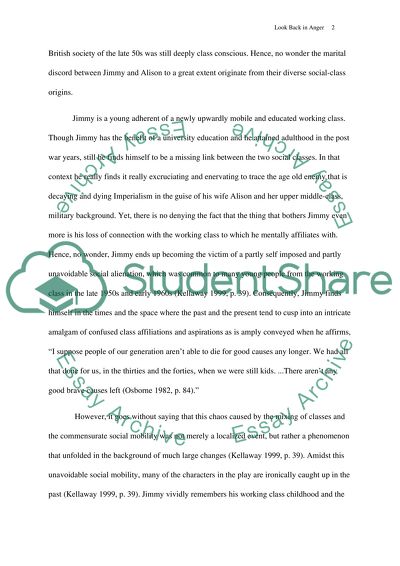Look Back in Anger by John Osborne - The Incumbent Historical Debate Essay. Retrieved from https://studentshare.org/history/1454022-critically-discuss-look-back-in-anger-either-the
Look Back in Anger by John Osborne - The Incumbent Historical Debate Essay. https://studentshare.org/history/1454022-critically-discuss-look-back-in-anger-either-the.


